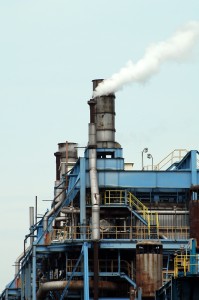By Cord Briggs, National Programs Intern
Since taking control of the House, Republican leadership has been hard at work dismantling our clean water and air protections. To date they have passed a whopping 160 anti-environmental bills, and that number is only continuing to sky-rocket. They have effectively made the 112
th Congress the most anti-environment Congress in history.
Last week, House Leadership pushed through a bill that would slash long-overdue air pollution standards for cement plants. These plants are the second largest source of mercury pollution in the US and also are known producers of toxic metals like arsenic, chromium and lead. The Environmental Protection Agency (EPA) estimates that these standards would annually save as many as 2,500 lives and prevent 17,000 cases of asthma and 130,000 days of missed work.
There’s something new every week with this Congress. So, what’s on the agenda this week? First up is a bill that would prevent new emissions standards for industrial boilers from taking effect and permanently exempt incinerators from the Clean Air Act. Earth Justice estimates that, if passed, the bill could result in anywhere between 7,500 and 19,500 deaths. After Boilers is a motion to
block new protections for coal ash, which is currently largely unregulated and contains such lovely compounds as arsenic, lead and mercury.
This begs the question: if the cost in human life from these bills is so clear, why would any politician, Republican or Democrat, ever vote for them?
House Leadership says it’s about job creation.. They claim that the public must choose between the health of their children and the security of a steady paycheck. However,
numerous studies have shown that this is a false choice. Environmental regulations are
proven job creators. For example, every dollar that the US invests in Clean Air Act protection produces forty dollars in overall benefit - it’s one of the most
cost-effective pieces of legislation ever passed.
What will deregulating cement production do in terms of economic impact? The cement industry claims it will cause plant closures and job losses, but that’s not really true. The overall cost of implementing these life saving measures will only be 400 million dollars a year, a small fraction of the ten billion dollars plus that cement companies rake in. Moreover, the EPA’s economic analysis found no indication that any plants would close as a result, and the Office of Management and Budget agrees In fact, three months after the new standards were released the Portland Cement Association itself reported that cement production was booming. Overall, they forecast a 50% increase between now and 2015, with import levels staying at their lowest levels in 20 years. Moreover, regulation will save Americans between 6.7 and 18 billion in health costs, for such problems as child asthma, each year!
I believe the real reason that the House continues to churn out bills toxic to our health and environment is the deep influence of powerful corporate interests. The same voices that lobbied congress saying that fuel efficiency standards or seatbelts would wreck our economy are still active. That’s why we have environmental regulations, to protect against the worst abuses of industry. It is essential that we as informed citizens standup to the bogus claim that we must choice between our environment and our economy. It’s time to demand that our representatives in Congress protect the clean water and air protections that not only keep us healthy, but will keep our economy growing long into the future.



